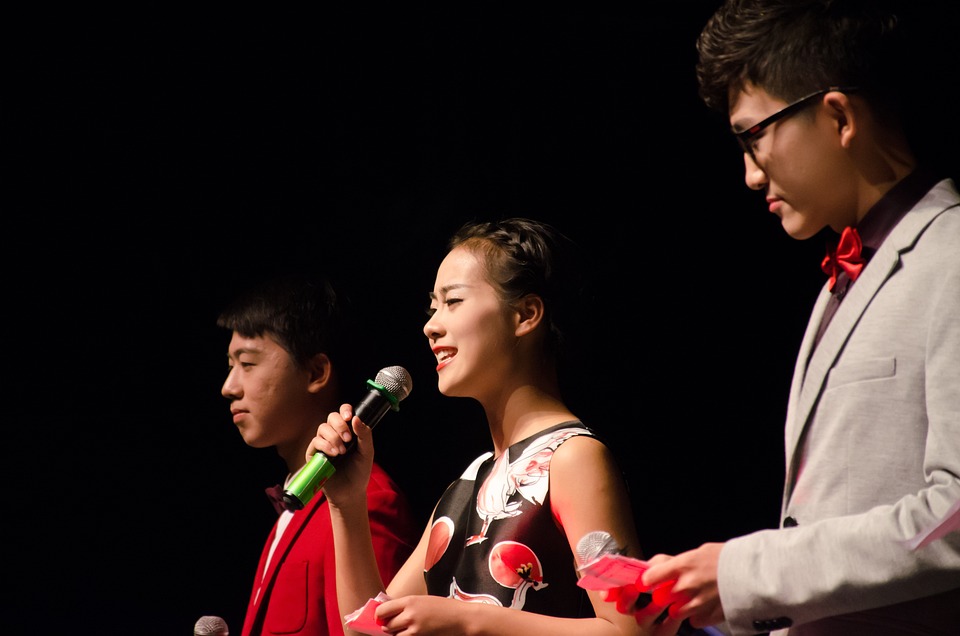Introduction
Television hosts have always played a crucial role in shaping public opinion and culture. From news anchors to talk show hosts, these individuals have the power to reach millions of viewers and influence their thoughts and beliefs. In this article, we will explore the impact of television hosts on public opinion and culture and how they use their platform to promote certain ideas and values.
Television Hosts as Opinion Leaders
Television hosts are often seen as opinion leaders, individuals who have the ability to influence the opinions and attitudes of others. This is due to their perceived credibility and authority, as well as their ability to reach a large audience. Whether they are discussing political issues, social issues, or pop culture, television hosts have the power to shape how their viewers think about these topics.
One way in which television hosts influence public opinion is through their choice of topics and guests. By deciding what to talk about on their shows and who to invite as guests, hosts can steer the conversation in a certain direction and highlight specific viewpoints. For example, a news anchor who consistently covers stories about crime and violence may influence viewers to believe that their community is unsafe, while a talk show host who frequently interviews activists and social justice advocates may inspire viewers to get involved in important causes.
Building a Connection with Viewers
Television hosts also have the ability to build a personal connection with their viewers, which can further enhance their influence. By sharing personal anecdotes, emotions, and opinions on their shows, hosts can create a sense of intimacy and trust with their audience. This can make viewers more receptive to the host’s ideas and more likely to adopt their perspective on various issues.
In addition, television hosts often use their platform to engage with viewers directly, whether through social media, live call-ins, or audience interaction. This two-way communication allows hosts to gauge public opinion in real-time and tailor their content accordingly. By responding to viewer feedback and incorporating viewer suggestions into their shows, hosts can strengthen their bond with their audience and ensure that they remain relevant and influential.
Shaping Cultural Norms and Values
Television hosts not only influence public opinion but also play a key role in shaping cultural norms and values. Through their discussions, interviews, and commentary, hosts can contribute to the creation of new trends, attitudes, and beliefs within society. For example, a talk show host who promotes body positivity may help to challenge conventional beauty standards and promote self-acceptance among viewers.
Moreover, television hosts can serve as cultural arbiters, helping to determine what is considered mainstream or socially acceptable. By featuring certain individuals or topics on their shows, hosts can elevate certain voices and perspectives while marginalizing others. This can have a profound impact on public discourse and shape the collective consciousness of a society.
Setting the Agenda
Television hosts also have the power to set the agenda for public discourse by highlighting certain issues and downplaying others. Through their selection of topics and guests, hosts can draw attention to specific issues and influence the public’s understanding of what is important. This agenda-setting function can have a ripple effect on public opinion, as viewers are more likely to prioritize and engage with topics that are featured prominently in the media.
Furthermore, television hosts can use their platform to drive social change and advocate for important causes. By leveraging their influence and credibility, hosts can raise awareness about pressing social issues, mobilize public support for policy changes, and inspire collective action. From fundraising telethons to public service announcements, television hosts have a variety of tools at their disposal to effect positive change in society.
Conclusion
Television hosts play a significant role in shaping public opinion and culture. Through their influence, they can sway public attitudes, shape cultural norms, and set the agenda for public discourse. By leveraging their platform and building a connection with their viewers, hosts can promote certain ideas and values and drive social change. As such, it is important for viewers to critically evaluate the messages and perspectives presented by television hosts and consider the broader implications of their influence on society.
